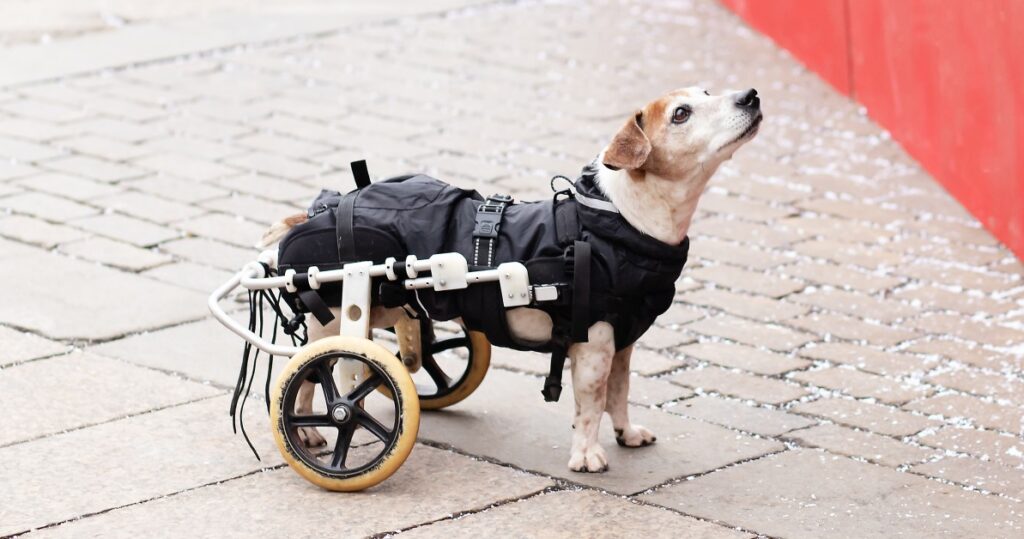Disabled Pets
- Home
- Disabled Pets

Support for Every Step of the Journey
Disabled pets, whether they have congenital, acquired, or age-related disabilities, are considered special needs pets due to their unique care requirements. Providing these pets with the necessary support in terms of prevention, rehabilitation, and quality of life can help them lead fulfilling lives despite their challenges.
Key Aspects to Consider When Caring for Disabled Pets:
Early detection and prevention:
Identifying potential health issues or disabilities early on can help pet owners and veterinarians develop a proactive care plan to minimize their impact. Regular veterinary check-ups and screening tests can aid in early detection and prevention of certain disabilities or conditions.Medical intervention:
Depending on the nature of the disability, medical intervention may be necessary to manage symptoms, prevent complications, or correct underlying issues. This can include medication, surgery, or other forms of therapy.Rehabilitation:
Disabled pets may benefit from rehabilitation services to help them adapt to their limitations, regain strength and mobility, or learn new ways of performing daily tasks. Physical therapy, hydrotherapy, or the use of assistive devices can play a significant role in the rehabilitation process.Adaptive aids:
Assistive devices, such as harnesses, wheelchairs, prosthetics, or orthotics, can help disabled pets maintain their mobility and independence. These aids can be tailored to each pet’s specific needs, allowing them to navigate their environment and perform essential tasks more comfortably.Environmental modifications:
Making adjustments to the home environment can make life easier and safer for disabled pets. Non-slip flooring, ramps, or creating easily accessible resting areas can help pets navigate their living space with greater ease and comfort.Mental stimulation:
Disabled pets may face unique challenges in terms of mental stimulation and enrichment. Providing appropriate toys, games, or interactive experiences that cater to their abilities can help them stay engaged and mentally active.Emotional support:
Emotional well-being is crucial for disabled pets. Providing love, companionship, and reassurance can help them feel secure, loved, and supported, improving their overall quality of life.Regular veterinary care:
Ongoing veterinary care and monitoring are essential for disabled pets to ensure their individual needs are being met, and any emerging health issues are addressed promptly.Specialized training and socialization:
Disabled pets may require specialized training or socialization techniques to help them adapt to their limitations and interact positively with other animals and humans.
A Life of Comfort, Joy, and Possibility
By focusing on prevention, rehabilitation, and quality of life for disabled pets, we can help them overcome their challenges and lead happy, fulfilling lives. This approach ensures that disabled pets receive the extra care, attention, and resources they need, creating a supportive environment that promotes their overall well-being.
